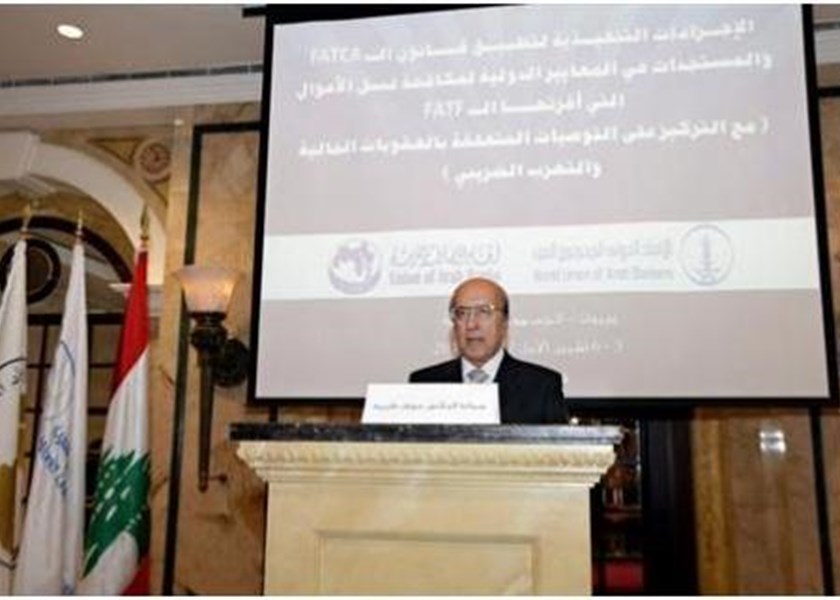
BEIRUT: Lebanese and Arab banks should step up efforts to conform to the United States Foreign Account Tax Compliance Act as its due date approaches, bankers and experts said at a Beirut forum Wednesday.
“Arab and Lebanese banks have all the interest in fully applying the act to avert any damage to their [international] reputation,” Joseph Torbey, head of the Lebanese Banks Association, said in his opening remarks.
“This is also vital to continue dealing normally with the United States and international banks and avoid being subject to fines of up to 30 percent tax cut on transfers from the U.S. [if they fail to comply],” he added.
The four-day forum, which is co-organized by the Union of Arab Banks and the World Union of Arab Bankers, will mull ways to put into force stricter international regulations including FATCA and tightened Financial Action Task Force recommendations.
Torbey said the relatively short time available for Arab banks to collect information on their U.S. clients, the need to upgrade databases, lack of experts on the subject and high cost of complying are among challenges to facing Arab lenders.
Lebanese banks, operating under Lebanon’s banking secrecy law, would need to be extra conscious in applying the law, various experts at the forum highlighted.
Shahdan Jubeili, head of legal affairs and compliance at Bank Audi, said U.S. clients at Lebanese banks would need to sign a special waiver allowing banks to report on their finances to the U.S. Internal Revenue Service.
The accounts of those who refuse to sign such a waiver would have to be closed to comply with the regulation, he explained, adding that under contracts to be signed with U.S. authorities, up to 30 percent of such accounts can be seized.
Lebanese banks with operations in sanctioned markets particularly in Syria and Sudan could stand in a conflict, Jubeili added.
“How would such countries be able to implement FATCA?” he asked, adding that correspondence with the IRS from several banks about the issue had not yet been answered.
To be fully compliant with FATCA banks must apply the regulations in each and every country they operate in.
FATCA was first introduced in October 2009 and was enacted later as part of the Hiring Incentives to Restore Employment passed in the United States in March of 2010.
The provisions of the act have a staggered implementation timeline, with requirements initially affecting accounts at U.S.-owned financial institutions abroad as of January 2013. Full implementation is due by early 2014.
The act is not limited to individuals. International banks will also have to report the finances of companies with partial U.S. ownership, Torbey said. Corporations with as low as 10 percent U.S. ownership can be subject to scrutiny under FATCA.
While the primary goal of FATCA is to gain information about U.S. persons, FATCA imposes a withholding tax where the applicable documentation and reporting requirements are not met, Jubeili said.
“But FATCA does not replace the existing U.S. tax reporting regimes. Banks will not be responsible to collect taxes for the U.S. but merely report banking data,” he explained.
Jubeili said countries, including the United Kingdom, are also finalizing similar laws calling on banks to start preparing for more extensive scrutiny of other account holders nationalities.
“This is a part of an international orientation that is becoming more and more evident,” Jubeili said.
“Whether we like it or not, not complying with FATCA is not even an option,” he added.
Sources told The Daily Star earlier that up to 90,000 Lebanese holding U.S. passports and who are living in Lebanon will have to file details about their bank accounts with the Lebanese banks.
They added that banks are keen to fully cooperate with the IRS to avoid painful financial penalties or having their names added to a black list.

